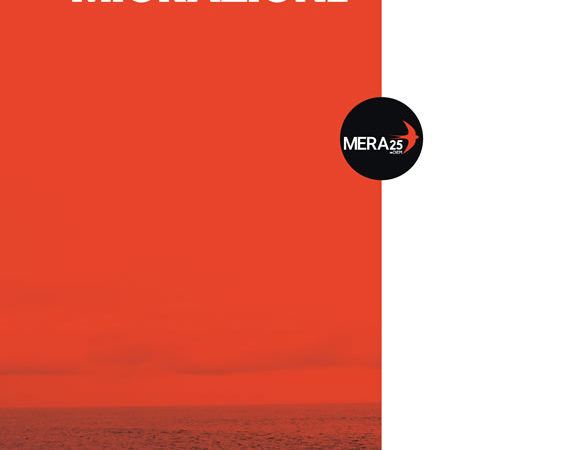The abundance of wealth means superior health: the true nature of capitalism during the COVID-19 outbreak.
With 208 countries and territories being affected, the coronavirus can be considered a major threat to life as we know it. Health and safety should be the primary concern of European governments during a pandemic. But governments have been trying to keep the economy stable without taking adequate measures, which has, in turn, caused more long-term economic repercussions.
In spite of the fact that the virus is a worldwide phenomenon causing harm to those living in affected areas, some are feeling its damaging effects harder than others. As many health outcomes like life expectancy and diabetes can be closely linked to economic disparities, it shows us how wealth is an important factor in a person’s wellbeing and that we are in fact in a continuous state of crisis, as the system allows selective groups to be able to have better health conditions than others. Philosopher Ralph Waldo Emerson once said ‘The first wealth is health’ — but in a world drenched in capitalism, it looks like the first health is wealth.
The history of social rights in western Europe
In times of the Industrial Revolution, the working-class could be described as Karl Marx would say: “mere owners of their physical and mental capacities, exploiting their own bodies for wage labour”. They would find themselves trapped in a dishonest relationship with an employer who owned the means of production. Within the informal or formal contracts formed between the two parties, the wage of the worker had to be kept low to maximize the accumulation of wealth and profits. As the state had no or little power to intervene in company rules, people had to face shifts up to 16 hours in inhumane circumstances, resulting in perilous life conditions for the worker.
With the passage of time, working conditions in Western Europe did improve significantly. Not because of the good-heartedness of the employers, but because of the strong presence of European union movements and other social movements that fought for social rights. This triggered demonstrations that demanded a 40-hour week as well as a higher pay and caused the active implementation of universalistic social regulation on matters like healthcare, and social insurance.
Although we should cherish these achievements, we should also keep in mind that these social structures that have been put in place have already been eroded due to the rise of neoliberalism within the European continent. The recent ITUC Global Rights Index 2019 showed that the rights of European workers to “establish or join a trade union” has drastically deteriorated since the last census in 2018.
The widening gap between rich and poor
While research shows that there has actually been a reduction in socio-economic inequalities between the 1930’s and 1970’s in Europe, since the mid 1970’s it has once again significantly increased. The precarization of labor has created insecure working conditions for most people due to a rise in zero-hour and part-time contracts. Labour market deregulation and ‘economic modernisation’ are the main causes of this trend, leaving lower-paid workers in more uncertain situations with less social benefits to support a decent standard of living. The occurrence of the 2008 financial crisis only accelerated the deterioration of working conditions causing increasing stress at work, wage cuts and wage freezes.
These existing health inequities are further exacerbated by the coronavirus crisis and its economic impact. Celebrities and politicians are using their money and influence to attempt to secure ventilators amidst the shortage, whilst already-disenfranchised groups — such as prisoners or the homeless — are more likely to suffer from health issues that would make them vulnerable to COVID-19.
In the United States, the state of Michigan’s reporting of the racial breakdown of coronavirus cases shows that African Americans are not only more likely to get the virus, but also to die from it. As Alexandria Ocasio-Cortez tweeted on April 3rd, “the chronic toll of redlining, environmental racism, wealth gap, etc. ARE underlying health conditions. Inequality is a comorbidity.” In Europe, it has also been reported that determinants of health are multifaceted and require a holistic approach — health and social policy must be combined with economic policy in order to make an impact.
As we can observe, socioeconomic inequality had already worsened in Europe before the arrival of the COVID-19 virus. It is precisely through this uneven fertile landscape that it has spread and become increasingly lethal. It is a fact that people with a lower income have a harder time saving up money, and have less benefits attached to their jobs such as health insurance or paid sick leave. As a result, these individuals barely have money — or no money at all — to support themselves during crises and thus are less flexible in warding off the by-products of the outbreak.
The indispensability of the working class
Ironically enough, it’s the people with vital yet low-wage jobs like cashiers, nurses, delivery personnel, bus drivers and workers who are risking their health to keep on providing essential services for their fellow citizens, forcing us to rethink who is ‘dispensable’ in the midst of this crisis.
Whilst it is often claimed that CEO’s are irreplaceable, aren’t they as ‘replaceable’ as the people who are now finding themselves at the frontline of the pandemic, doing everything in their power to tackle the outbreak? Is it fair that a CEO in Europe at times earns 171 times the amount of what a nurse, bus driver or worker makes?
In times like these, the only distinction in between jobs lies between the difference in income, socio-economic benefits and the damaging economical and physical effects on lower-paid workers in contrast to these effects on high-income earners. In the world after the coronavirus, we’ll have to learn out of these experiences by continuously demanding more social justice for the lower classes through organizing ourselves on a regular basis, as has been done in the past.
The next steps
As we keep these realities in mind, we’re now clearly seeing the fragility of our economic system.
The ‘European Pillar of Social Rights’ says: “Everyone has the right to timely access to affordable, preventative and curative health care of good quality.” Yet, numerous countries in Europe are now struggling to counter the novel coronavirus and are now experiencing the devastating effects of neoliberal austerity measures imposed on public healthcare throughout the last decades, from the decrease in recruitment rates to the frozen or even reduced salaries of nurses.
We won’t forget the shortcomings of our healthcare systems, exposed by the COVID-19 pandemic — last month, our movement called for “free, universal, public healthcare for all!” But above all, an urgent and radical restructuring of the EU is necessary. For this reason, DiEM25 proposes a 3-point plan to fight recession, and future crises, effectively. The plan consists of: 1) issuing €1 trillion in ECB-Eurobonds, 2) the injection of a €2000 European Solidarity Cash Payment to every European giving them the capability to boost economies around them and 3) the introduction of a European Green Recovery & Investment Program to avoid more austerity, less investment and the diminishment of quality jobs.
The steps mentioned above are only the first steps towards changing a Europe overtaken by greed and the capital of multinationals, but with these first steps a new Europe will arise.
Volete essere informati delle azioni di DiEM25? Registratevi qui!



